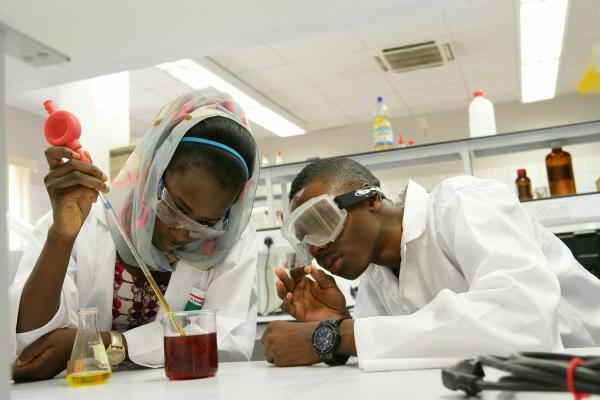Pharmaceutical Society of Nigeria (PSN) has called for the development of holistic pharmacy workforce to cope with the training of pharmacists at undergraduate and postgraduate levels in Nigeria.
The idea which aimed at promoting an effective academic and industrial linkage was one of the major decisions reached by the association at a recent two-day colloquium with the theme: “Repositioning Pharmacy in an Unstable Economy,” held in Lagos.
PSN president, Prof. Cyril Usifoh, said the ‘’Colloquium endorsed the need for bilateral cooperation between the West Africa Postgraduate College of Pharmacists (WAPCP) and the Universities in developing holistic pharmacy personnel driven workforce to cope with the training of pharmacists at undergraduate and postgraduate levels in Nigeria.’’
He said it also recommended an improved programme of action to achieve the goals by building a template that would impact on the country’s healthcare delivery system.
The event adopted steps taken by Association of Community Pharmacists of Nigeria (ACPN) to expand the frontiers of routine immunisation beyond Covid-19 vaccine.
The position of the colloquium includes that ‘’negotiations must be activated to ensure operational recognition of community pharmacies as health facilities accredited to formally undertake routine immunisation, family planning, ante-natal care and related primary-care services as provided for in existing health statutes at federal, state and local government levels.’’
The association called on the National Health Insurance Authority (NHIA) to carefully evaluate the various provisions of the PCN Act 2022 sections 22, 27(1), 29(1), 29(2), 29(3), 33(1), 33(2) and 71 to enable it appreciate that the law in Nigeria today prohibits stocking, dispensing, sales of drugs in any facility/premises which does not have a superintendent pharmacist and is not registered by the Pharmacy Council of Nigeria.
It said, ‘’NHIA must as a lawful requirement, draw up its new operational guidelines to reflect the new realities in pharmacy practice to enjoy harmonious relationship within the ranks of all concerned stakeholders in health insurance.’’
Community pharmacy practitioners were advised to deploy IT into their practice to pave the way for patient medication records data gathering and management, including pharmacovigilance. Similarly, the ACPN leadership is mandated to respond to need assessment for appropriate use of containers and labels in the dispensing of drugs.
The association urged the Federal Ministry of Health to encourage ‘’rational dispensing and prescription of drugs in Nigeria by developing a framework for the long envisaged National Prescription Policy, while also articulating an approved blueprint that compels sustainable models of Rural Pharmacy Practice in Nigeria.’’
The gathering of pharmacists noted with concern that Nigeria boasts of 170 universities and 20 accredited pharmacy schools, without an existing structure for the promotion and exchange of knowledge between the institutions and the pharmaceutical industry.
The chairman of the second day of the event, Dr. Fidelis Ayebae observed, albeit with regret, that the pharma industry does not significantly feature in the GDP equation of Nigeria. He advised on the need for pharmacists to strategically draw value to themselves as professionals. ‘’This will ensure that pharmacists are strategically placed as heads of ministries and parastatals,’’ he said.
The pharmacists insisted on a disciplined, ethical and professionally inclined pharmacy workforce in the public service and emphasized the need for the ‘’PSN and PCN to invoke the disciplinary templates to sanction erring pharmacists, who connive with their hospital managements to violate code of ethics, pharmacy laws and a wide range of PSN resolutions in the process of scurrying pecuniary gains and interests.’’
We’ve got the edge. Get real-time reports, breaking scoops, and exclusive angles delivered straight to your phone. Don’t settle for stale news. Join LEADERSHIP NEWS on WhatsApp for 24/7 updates →
Join Our WhatsApp Channel










